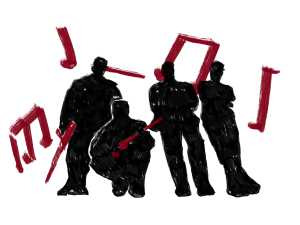Facebook’s Dystopian Meta Will Profit on Dehumanization
January 3, 2022
The notion that our lives are headed toward a virtual future certainly hasn’t come as a surprise, but has raised concerns, as leaps in technology often do. The introduction of Facebook’s 20 million dollar rebranding into “Meta” does little to complicate this narrative. What is Meta, and why is it so controversial?
Think of Meta as the foundation for a world existing entirely in the digital realm, interacted with through virtual reality. A quick peek at Facebook’s new YouTube video, titled “The Metaverse, and How We’ll Build It Together,” depicts how Meta encompasses education, commerce, and entertainment. This rebrand subtly reframes Facebook’s reputation from disastrously fraudulent to woke and avant-garde; however, this new title should not be taken at face value. Considering former Facebook data scientist Frances Haugen’s damning allegations, is it wise to collectively accept a company that has proven time and time again that human manipulation is the source of its success?
When does Meta need to have regulations placed around its existence?
This question is often posed, but the answers coming from Generation Z may be the most telling. They have been fighting an uphill battle with Big Tech since its inception, resisting the grasps of computer interfaces designed specifically to be addictive and entrancing. Often difficult to decode by pre-digital age generations, this phenomenon was revealed prophetically in “15 Million Merits,” an episode of the highly acclaimed TV series Black Mirror. A cautionary tale, the episode places one in a world dominated by automated displays controlled by a single company. Amidst the bright, colorful screens, all feels lifeless.
It was almost akin to Facebook’s outlook for our future, subsumed in their metaverse. I found myself at one point, in the midst of the night, dancing along to the show as it beautifully orchestrated a character’s desperate and passionate escape from the artificial world. The feeling was hopeful, but short-lived, as the dystopia soon came back to haunt the reality of those she left behind. I realized, ironically at this moment, how inspiring social technology could be. After all, it was the screen—this virtual connection—and a platform run by Big Tech which allowed me to feel in touch with my own reality.
As I set out to further try and understand the negative impacts of a society controlled by technology, I ended up leaving more open-minded. So maybe it’s not all bad, and sharing emotions through “augmented” reality has its upsides. But, where do we draw the line? When does Meta need to have regulations placed around its existence?
This is where “15 Million Merits” does its job best, showing the possibility of a future unable to unplug. I think that is why the sole purpose of consumers in the episode was to create electricity for the order in charge. It explains that the longer we stay plugged into social media, the more companies like Facebook are able to profit from us. As consumers, we need to know when to step away, to remove ourselves from virtual realities like Meta, we must invest in the real connections around us, which contain a spark you can’t find anywhere online.
This piece also appears in our December 2021 print edition.










